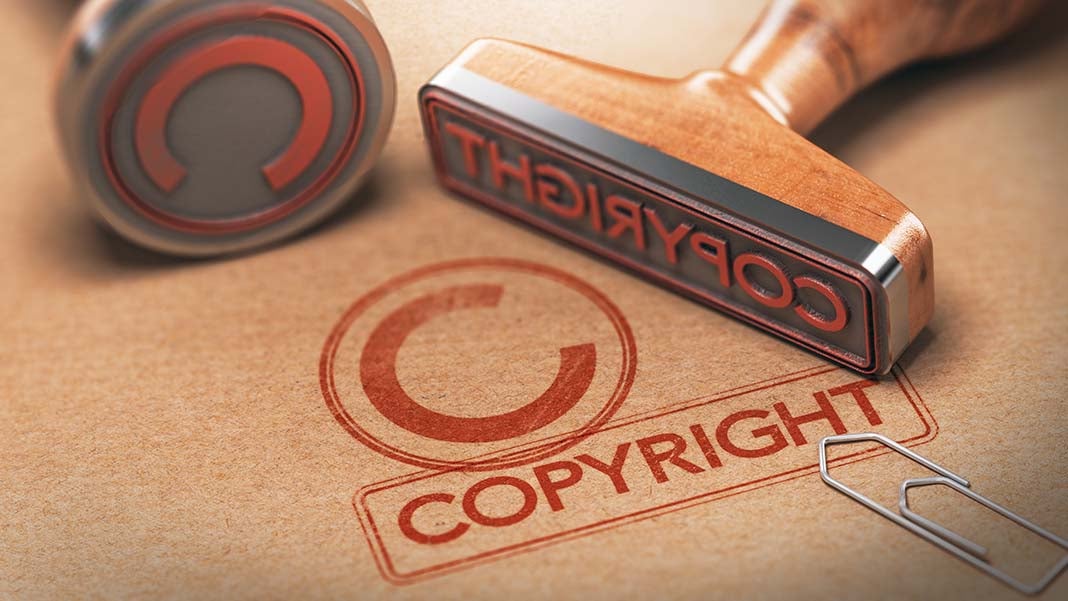
As an artist or entrepreneur, one of the most dreaded obstacles you may face is someone stealing your work. Copyright infringement is common and can be a massive disruption to a business or career.
If it happens to you, be prepared to tackle it head on. These five critical steps will help you keep your hard work yours.
1. Check your registration status
Before you do anything, make sure your work is actually registered. Find your certificate of registration issued by the U.S. Copyright Office and clarify the stipulations of your copyright.
Do you have your certificate of registration? Without it, you’re unable to initiate legal action against a party that is copying your work.
Moreover, if your work isn’t registered, the infringing party could register before you and take legal ownership. The Copyright Office recommends registering as soon as possible to ensure litigation and other remedies remain available to you. If your work is not registered, however, recourse becomes uncertain.
In other words, be sure your work is registered. If it’s not, register it immediately.
2. Find a copyright lawyer
Perhaps the most important thing to do if someone is infringing on a copyright of yours is to find a lawyer. However, avoid picking up the phone and calling any Saul Goodman-style attorney; instead, look for one that specializes in copyright law or intellectual property.
Don’t know where to start? Try some of these channels:
- Your local or state bar association
- Public interest groups that assist business owners and creatives in navigating intellectual property issues
- Local law schools may also be able to help you through programs for up-and-coming law students to practice in the field.
Finding a lawyer before you contact the party stealing your work helps to ensure you are acting in accordance with the law. If you issue a cease and desist letter, or even contact the party in question with threats or questioning, you could make yourself vulnerable to counter-claims.
Furthermore, a lawyer will help you determine whether the infringement is simply civil or criminal, in which case you would need to contact the FBI. In short, make sure you have a legal representative before taking any hasty actions.
3. Issue a cease and desist letter
After your attorney has firmly established that the party in question is infringing on your copyright, send a cease and desist letter. This acts as something of an opening overture and if you’re lucky, could end the problem immediately.
Many people who steal the work of others do so under the assumption that the creator will never find out—or if they do, won’t know how to respond. Issuing your cease and desist will establish just how serious you are.
However, your infringing friends may not immediately back down. If this is the case, the cease and desist letter, and any subsequent correspondence, acts as a record of communication and shows due diligence on your part, which will ultimately contribute to your case should you sue.
4. File a petition for a copyright infringement injunction
While your cease and desist acts like a warning, a copyright infringement injunction is essentially the federal government doing the same thing, informing the offending party that they are breaking the law.
This injunction is a powerful legal command, issued by a judge overseeing the case.
To petition for this action, you need to determine which federal court has jurisdiction over your area. You will also need to provide detailed evidence of infringement, which your lawyer can help you establish.
If the injunction is granted, should the infringing party not comply, the court can then issue a contempt citation, which could include fines or other punishments.
(Note: This step may be skipped should you and your lawyer determine that suing the offending party directly is the better course of action.)
5. Take them to court
If you’ve followed all of the prior steps and the opposing party persists in stealing your copyrighted work, it’s time to take them to court.
Before your lawyer files the suit, they may recommend attempting mediation or some form of settlement. This is because a trial can:
- Devour a shocking amount of time
- Be very expensive—$43,000 (on average) if you happen to be wrong
- Dominate your business and personal life
- Often be unpredictable—you may end up losing
However, should the issue remain unresolved, your attorney will file a document called a “complaint” that will describe the extent of the copyright infringement, who is involved, what you are seeking as recourse (payment, cessation of infringement, etc.), and the legal foundation for issuing the complaint. The infringing party, now the defendant, will be served with a summons, outlining the details of the suit.
Hopefully it never gets this far and you’re able to protect your work through the initial steps. Still, it’s important to know how to proceed should someone copy your work. Whether you’re a creative or business owner, protecting your intellectual property could be the difference between a fruitful enterprise and years of legal headache.
4323 Views












